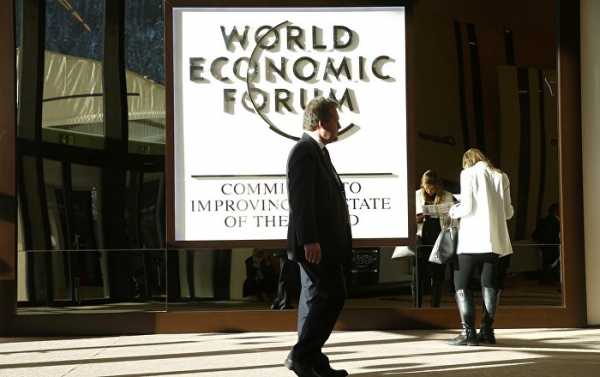
A report from the World Economic Forum paints a grim picture for international economic relations this year, citing concerns about heightened political risks, the polarisation of wealth, as well as environmental and geostrategic challenges.
Kristian Rouz — Organisers of the World Economic Forum in Davos, Switzerland, say that global GDP growth might be facing a sharp slowdown this year, accompanied by possible recessions across several major economies.
Experts say tensions in international relations and domestic political risks pose the most acute concern, while rising threats to cybersecurity and income inequality add to the rising fears of global stagnation.
According to the World Economic Forum’s yearly Global Risks Report, international economic relations have entered a period of readjustment, accompanied by rife uncertainty and potentially painful changes to supply chains, as well as the flows of capital, goods, and workers across the globe.
Experts painted a murky picture of an overall ‘darkening’ economic outlook this year, suggesting that a possible slowdown in Mainland China’s GDP growth, geostrategic friction between China and the US, and threats to regional security and economic prosperity could all contribute to unpredictable and, quite likely, negative developments in the global economy.
“With global trade and economic growth at risk in 2019, there is a more urgent need than ever to renew the architecture of international cooperation,” World Economic Forum president Borge Brende said. “We simply do not have the gunpowder to deal with the kind of slowdown that current dynamics might lead us towards.”
The report’s stark warnings come as US President Donald Trump, British Prime Minister Theresa May, and French President Emmanuel Macron all said they wouldn’t attend this year’s gathering of global leaders. The reasons behind these cancellations indirectly support the WEF’s view of political risks as starting to affect international economic cooperation.
Trump said the ongoing standoff in Congress over the US government shutdown and the border wall will prevent him from attending. May cited rife tensions in the UK Parliament over the upcoming Brexit, in the absence of a deal or a broad cross-party consensus, as her reasons to remain in London instead of going to Davos.
For his part, Macron said the ongoing ‘yellow vest’ protests and the protesters’ demands require his constant attention — as the French government has recognised the majority of citizens are facing quite modest living conditions after years of slow economic growth and mounting income inequality.
Evidently, all three prioritised domestic concerns over one of the most important international gatherings this year — and WEF analysts believe the majority of advanced countries are set to becoming increasingly introspective in the wake of the nascent post-globalisation world.
Meanwhile, experts say the upcoming meetings in Davos — which will still feature executives from top international corporations, billionaire investors, and key policymakers from across the globe — will likely take place amid subdued sentiments, amid an atmosphere of caution and mistrust.
“The mood is going to be much darker than a year ago,” Nariman Behravesh of IHS Markit said. “A recession isn’t imminent, but as economies slow, it wouldn’t take much to topple growth.”
Nonetheless, some experts don’t believe the WEF’s grim predictions are entirely accurate. A separate report from the OECD last week said the global economy remains solid, despite the mounting risks, as employment across its member-states has risen to 68.4 percent, the highest on record.
Some experts also criticised alarmist media narratives as possibly suppressing consumer and investor confidence. They say opinionated statements and the politicisation of the public discourse could hinder economic growth prospects, even though macroeconomic fundamentals remain objectively strong.
“We see the biggest risk in the global economy as one of talking ourselves into a recession,” Michael Corbat CEO at Citigroup, said.
The WEF report also highlighted an urgent necessity for improvements in infrastructure and cybersecurity across the majority of advanced and developing nations. Experts warned that the lack of roads, pipelines, and Internet access — as well as sufficient protections against cybercrime — are hindering economic growth in most countries.
“The persistent underfunding of critical infrastructure worldwide is hampering economic progress, leaving businesses and communities more vulnerable both to cyberattacks and natural catastrophes, and failing to make the most of technological innovation,” John Drzik of insurance broker Marsh, who also took part in writing the WEF report, said.
WEF experts also pointed to the threats posed by climate change, loss of animal species, and broader environmental challenges as affecting the pace of global economic growth this year as well.
The Davos Forum starts on Tuesday, 22 January, and ends on Friday, 25 January. The gathering of world leaders is expected to focus on a wide range of issues, including, but not limited to, the aforementioned concerns — and offer possible ways to manage and mitigate these risks.
Sourse: sputniknews.com






